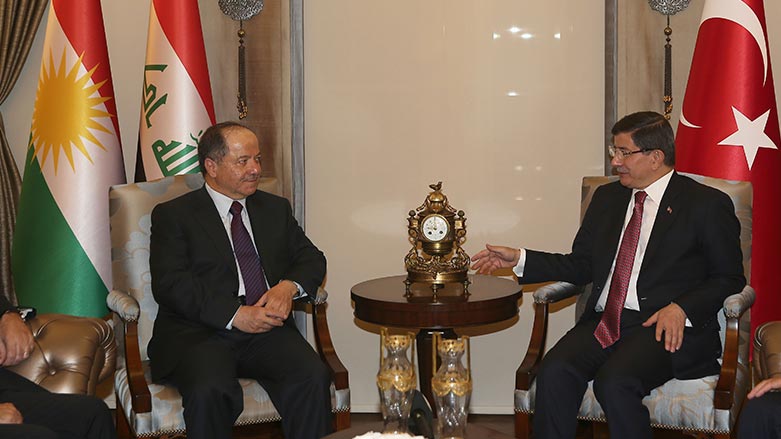Turkish ruling party unfavorable to Kurdish statehood

ANKARA, Turkey (K24) - On Thursday, Turkey's ruling Justice and Development Party (AKP) voiced its opposition to Kurdish secession from Iraq.
"ARTIFICIAL CRISES"
During a press briefing at AKP headquarters in Ankara, deputy head and spokesperson of the party, Omer Celik said, "it is not right to create statelets and artificial crises," reported K24 bureau.
AKP spokesperson was answering a reporter's question regarding Turkey's position on President Masoud Barzani’s Tuesday statement on an independence plebiscite
Barzani said in the statement published on the presidency website that Kurdistan Region should hold a non-binding referendum on independence.
SHIFTING POLICIES TOWARD A TABOO
Celik's remarks came as a surprising turnabout in Turkish ruling party's recent policy toward the rising prospects of Kurdistan Region to independence, particularly in the aftermath of the fall of the Iraqi city of Mosul to the Islamic State group (IS) in June 2014.
Later that month, a then-spokesperson for the AKP, Huseyin Celik, himself a Kurd, told the international business daily Financial Times that a division in Iraq appeared inevitable, and Turkey would consider an independent Kurdistan as "siblings."
Stating that formerly an independent Kurdish state was casus belli for Turkey, Huseyin Celik said, "no one has the right to say this now."
"In Turkey, even the word ‘Kurdistan’ makes people nervous, but their name is Kurdistan [in the Iraqi Constitution]," added Celik.
In May 2015, Turkish President Recep Tayyip Erdogan told a pro-government TV station that Kurdish secessionist demands from Iraq was a domestic issue and did not interest Turkey, as long as it was "not about this country's borders and unitary system."
However, in late November, Erdogan gave signs of his discontent with the Kurdish political empowerment and military expansions in Iraq and Syria, saying "We do not want what happened in Northern Iraq to be repeated in Northern Syria."
President Erdogan was referring to self-declared Kurdish autonomous administration in Syrian Kurdistan, better known as Rojava, all along his country's southern frontier.
Turkey was an ardent opponent of Kurdish separation from Iraq after the US-led invasion of Iraq and the toppling of the Ba’ath dictator, Saddam Hussein.
In a 2003 interview with a Turkish TV, a then-head of the newly-founded AKP, Erdogan stated that Turkey "would never let the foundation of a state in Northern Iraq go unchallenged."
Subsequent AKP governments continued to carry on decades-old anti-Kurdish policies until as early as 2010 when Turkey opened a consulate in the regional capital of Erbil that resulted in a boom in cross-border commerce and oil business between the two sides.
Nonetheless, in the face of a renewed Kurdistan Workers' Party (PKK) insurgency, Turkey remains troubled with its own Kurdish population's aspirations for autonomy.
Editing by Ava Homa
(Adnan Gerger contributed to this piece from Ankara)
